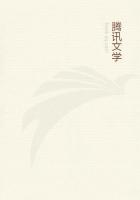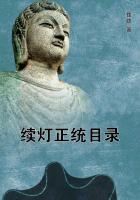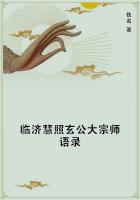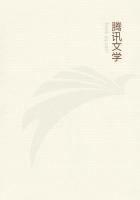Fidelity to regulations, which are always defective, however wise they may be thought, allows of no complaint.Life, talent, and all the human faculties are the property of the State, which has the right to use them as it pleases for the common good.Private associations are sternly prohibited, in spite of the likes and dislikes of different natures, because to tolerate them would be to introduce small communities within the large one, and consequently private property; the strong work for the weak, although this ought to be left to benevolence, and not enforced, advised, or enjoined; the industrious work for the lazy, although this is unjust; the clever work for the foolish, although this is absurd; and, finally, man--casting aside his personality, his spontaneity, his genius, and his affections--humbly annihilates himself at the feet of the majestic and inflexible Commune!
Communism is inequality, but not as property is.Property is the exploitation of the weak by the strong.Communism is the exploitation of the strong by the weak.In property, inequality of conditions is the result of force, under whatever name it be disguised: physical and mental force; force of events, chance, FORTUNE; force of accumulated property, &c.In communism, inequality springs from placing mediocrity on a level with excellence.This damaging equation is repellent to the conscience, and causes merit to complain; for, although it may be the duty of the strong to aid the weak, they prefer to do it out of generosity,--they never will endure a comparison.Give them equal opportunities of labor, and equal wages, but never allow their jealousy to be awakened by mutual suspicion of unfaithfulness in the performance of the common task.
Communism is oppression and slavery.Man is very willing to obey the law of duty, serve his country, and oblige his friends; but he wishes to labor when he pleases, where he pleases, and as much as he pleases.He wishes to dispose of his own time, to be governed only by necessity, to choose his friendships, his recreation, and his discipline; to act from judgment, not by command; to sacrifice himself through selfishness, not through servile obligation.Communism is essentially opposed to the free exercise of our faculties, to our noblest desires, to our deepest feelings.Any plan which could be devised for reconciling it with the demands of the individual reason and will would end only in changing the thing while preserving the name.Now, if we are honest truth-seekers, we shall avoid disputes about words.
Thus, communism violates the sovereignty of the conscience, and equality: the first, by restricting spontaneity of mind and heart, and freedom of thought and action; the second, by placing labor and laziness, skill and stupidity, and even vice and virtue on an equality in point of comfort.For the rest, if property is impossible on account of the desire to accumulate, communism would soon become so through the desire to shirk.
II.Property, in its turn, violates equality by the rights of exclusion and increase, and freedom by despotism.The former effect of property having been sufficiently developed in the last three chapters, I will content myself here with establishing by a final comparison, its perfect identity with robbery.
The Latin words for robber are _fur_ and _latro;_ the former taken from the Greek {GREEK m }, from {GREEK m }, Latin _fero_, I carry away; the latter from {GREEK `i }, I play the part of a brigand, which is derived from {GREEK i }, Latin _lateo_, I conceal myself.The Greeks have also {GREEK ncg }, from {GREEK ncg }, I filch, whose radical consonants are the same as those of {GREEK ` cg }, I cover, I conceal.Thus, in these languages, the idea of a robber is that of a man who conceals, carries away, or diverts, in any manner whatever, a thing which does not belong to him.
The Hebrews expressed the same idea by the word _gannab_,--robber,--from the verb _ganab_, which means to put away, to turn aside: _lo thi-gnob (Decalogue: Eighth Commandment_), thou shalt not steal,--that is, thou shalt not hold back, thou shalt not put away any thing for thyself.That is the act of a man who, on entering into a society into which he agrees to bring all that he has, secretly reserves a portion, as did the celebrated disciple Ananias.
The etymology of the French verb _voler_ is still more significant._Voler_, or _faire la vole_ (from the Latin _vola_, palm of the hand), means to take all the tricks in a game of ombre; so that _le voleur_, the robber, is the capitalist who takes all, who gets the lion's share.Probably this verb _voler_had its origin in the professional slang of thieves, whence it has passed into common use, and, consequently into the phraseology of the law.
Robbery is committed in a variety of ways, which have been very cleverly distinguished and classified by legislators according to their heinousness or merit, to the end that some robbers may be honored, while others are punished.
We rob,--1.By murder on the highway; 2.Alone, or in a band; 3.
By breaking into buildings, or scaling walls; 4.By abstraction;5.By fraudulent bankruptcy; 6.By forgery of the handwriting of public officials or private individuals; 7.By manufacture of counterfeit money.
This species includes all robbers who practise their profession with no other aid than force and open fraud.Bandits, brigands, pirates, rovers by land and sea,--these names were gloried in by the ancient heroes, who thought their profession as noble as it was lucrative.Nimrod, Theseus, Jason and his Argonauts;Jephthah, David, Cacus, Romulus, Clovis and all his Merovingian descendants; Robert Guiscard, Tancred de Hauteville, Bohemond, and most of the Norman heroes,-- were brigands and robbers.The heroic character of the robber is expressed in this line from Horace, in reference to Achilles,--_"Jura neget sibi nata, nihil non arroget armis_,"
and by this sentence from the dying words of Jacob (Gen.

